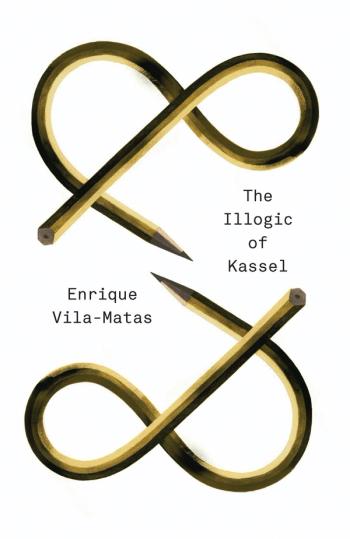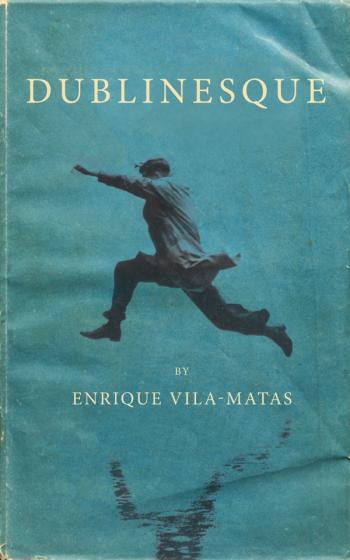Anne McLean
Anne McLean lives in Toronto and has translated the works of authors including Héctor Abad, Javier Cercas, Julio Cortázar, Evelio Rosero, and Juan Gabriel Vásquez.
Spanish Translator
Anne McLean lives in Toronto and has translated the works of authors including Héctor Abad, Javier Cercas, Julio Cortázar, Evelio Rosero, and Juan Gabriel Vásquez.

Translated by Anne McLean and Victor Meadowcroft
Way Far Away is the Colombian master Evelio Rosero’s ninth novel and has been billed by his Spanish publisher as “one of the most important Colombian works of fiction written in the past two decades.” In search of his missing granddaughter Rosaura, an old man named Jeremías Andrade arrives in a town strewn with dead mice and overflowing with mist and fog. The owner of a rotten hotel and the dwarf who always accompanies her; children who play with sinister soccer balls and observe life from the ruined rooftops; an albino named Bonifacio who appears and disappears like a ghost; the cart driver whose only task is to pick up the mice piling up night after night; the charitable nuns in a nearby convent—these are the characters that converge in a vigil turned nightmare. Jeremías’s wanderings reveal a haunting truth, and a possibility of reunion in a place where all is lost, a forever-gaping abyss.

Translated by Victor Meadowcroft and Anne McLean
I was alone when someone pounded on my door. Who could it be?
So begins Toño the Infallible, Evelio Rosero’s gripping novel about an intense relationship between a writer and a sociopath. Visited by his friend (a kind of Colombian Rasputin) seemingly at the verge of death, the writer, Eri, looks back on the arc of both of their lives. Unique in both its tone and its structure, the novel takes us from their student days (school fights, playground revelations, and an unforgettable trip to the seaside) into their adult years, involving rumors of a hippie cult and a bizarre raucous theater exhibit of history’s most violent crimes. Toño uses his charm and wealth—as well as reputed magical powers—to manipulate others, but it isn’t until the end of the book that the devastating truth is revealed—and how true is it? Reminiscent of the fiction of Roberto Bolaño and the films of Alfonso Cuarón, this brilliant novel takes us into the heart of his country’s darkness, creating an unforgettable portrait of a society where humanity still endures, despite its brutality.

Translated by Victor Meadowcroft and Anne McLean
The renowned Colombian writer Evelio Rosero has never been one to shy away from the darker aspects of his nation’s history and society. His magnificent novel Stranger to the Moon portrays a world that seems to exist outside time and place but taps into the dark myths and collective subconscious of his country, with its harrowing inequality and violence. A parable of pointed social criticism, with naked humans imprisoned in a house in order to serve the needs of “the vicious clothed ones,” the novel describes what ensues when a single “naked one” privately rebels, risking his own death and that of his fellow prisoners. Each subsequent section of the book adds further layers to the ritualistic and bizarre social order inhabited by its characters. Insects and reptiles are trained as agents and spies against the naked ones, and only the most fortunate humans manage to reach old age by taking up strategic spots near the kitchens and grabbing for the fiercely contested food. Stranger to the Moon is a brave, powerful, and distinctive novel by a writer who arguably holds the strongest claim to the title of Colombia’s greatest living author.

Translated by Anne McLean and Anna Milsom
A puzzling phone call shatters a writer’s routine. An enigmatic female voice extends a dinner invitation, and it soon becomes clear that this is an invitation to take part in the documenta, the legendary exhibition of contemporary art held every five years in Kassel, Germany. The writer’s mission will be to sit down to write every morning in a Chinese restaurant on the outskirts of town, transforming himself into a living art installation. Once in Kassel, the writer is surprised to find himself overcome by good cheer as he strolls through the city, spurred on by the endless supply of energy at the heart of the exhibition. This is his spontaneous, quirky response to art, rising up against pessimism. With humor, profundity, and a sharp eye, Enrique Vila-Matas tells the story of a solitary man, who, roaming the streets amid oddities and wonder, takes it upon himself to translate from a language he does not understand.

Translated by Thomas Bunstead and Anne McLean
An author (a version of Vila-Matas himself) presents a short “history” of a secret society, the Shandies, who are obsessed with the concept of “portable literature.” The society is entirely imagined, but in this rollicking, intellectually playful book, its members include writers and artists like Marcel Duchamp, Aleister Crowley, Witold Gombrowicz, Federico García Lorca, Man Ray, and Georgia O’Keefe. The Shandies meet secretly in apartments, hotels, and cafes all over Europe to discuss what great literature really is: brief, not too serious, penetrating the depths of the mysterious. We witness the Shandies having adventures in stationary submarines, underground caverns, African backwaters, and the cultural capitals of Europe.

Translated by Anne McLean and Rosalind Harvey
Dublinesque opens with a renowned and retired literary publisher’s dream: he finds himself in Dublin, a city he’s never visited, and the mood is full of passion and despair. Afterwards he’s obsessed with the dream, and brings three of the writers he published on a trip to the same cemetery where Paddy Dignam was buried in James Joyce’s Ulysses, where they hold a funeral for “The Gutenberg Age.” And then he notices that he’s being shadowed by a mysterious man who looks exactly like Samuel Beckett…
In this witty and poignant novel, perhaps his finest yet, Enrique Vila-Matas traces a journey that connects the worlds of Joyce and Beckett and all they symbolize: great literature and evidence of the difficulties faced by literary authors, publishers, and good readers, their struggle to survive in a society where literature is losing influence.

Translated by Anne McLean and Anna Milsom
Tancredo, a young hunchback, observes and participates in the rites at the Catholic church where he lives under the care of Father Almida. Also in residence are the sexton Celeste Machado, his goddaughter Sabina Cruz, and three widows known collectively as the Lilias, who do the cooking and cleaning and provide charity meals for the local poor and needy. One Thursday, Father Almida and the sexton must rush off to meet the parish’s principal benefactor, Don Justiniano. It will be the first time in forty years Father Almida has not given mass. Eventually they find a replacement: Father Matamoros, a drunkard with a beautiful voice whose sung mass is spellbinding to all. The Lilias prepare a sumptuous meal for Father Matamoros, who persuades them to drink with him. Over the course of the long night the women and Tancredo lose their inhibitions and confess their sins and stories to this strange priest, and in the process reveal lives crippled by hypocrisy.

Translated by Anne McLean
This brilliantly ironic novel about literature and writing, in Vila-Matas’s trademark witty and erudite style, is told in the form of a lecture delivered by a novelist clearly a version of the author himself. The “lecturer” tells of his two-year stint living in Marguerite Duras’s garret during the seventies, spending time with writers, intellectuals, and eccentrics, and trying to make it as a creator of literature: “I went to Paris and was very poor and very unhappy.” Encountering such luminaries as Duras, Roland Barthes, Georges Perec, Sergio Pitol, Samuel Beckett, and Juan Marsé, our narrator embarks on a novel whose text will “kill” its readers and put him on a footing with his beloved Hemingway. (Never Any End to Paris takes its title from a refrain in A Moveable Feast.) What emerges is a fabulous portrait of intellectual life in Paris that, with humor and penetrating insight, investigates the role of literature in our lives.

Translated by Anne McLean
Ismail, the profesor, is a retired teacher in a small Colombian town where he passes the days pretending to pick oranges while spying on his neighbor Geraldina as she lies naked in the shade of a ceiba tree on a red floral quilt. The garden burns with sunlight; the macaws laugh sweetly. Otilia, Ismail’s wife, is ashamed of his peeping and suggests that he pay a visit to Father Albornoz. Instead, Ismail wanders the town visiting old friends, plagued by a tangle of secret memories: Where have I existed these years? I answer myself: up on the wall, peering over. When the armies slowly arrive, the profesor’s reveries are gradually taken over by a living hell. His wife disappears and he must find her. We learn that not only gentle, grassy hillsides surround San José but landmines and coca fields. The reader is soon engulfed by the violence of Rosero’s narrative that is touched not only with a deep sadness, but an extraordinary tenderness.
